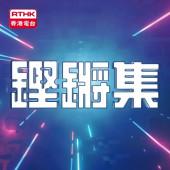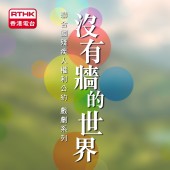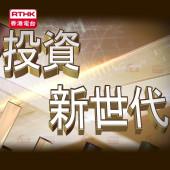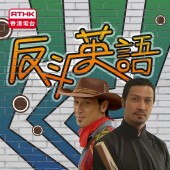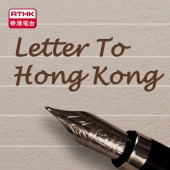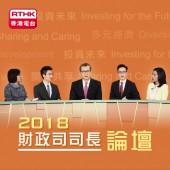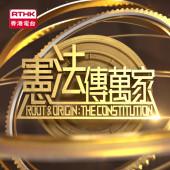 載入中 ...
載入中 ...
返回
Executive Councillor Ronny Tong
2018-06-17
At the opening of the legal year in January, our Chief Justice, Geoffrey Ma warned us that people with strong views on political and other issues were making “unwarranted criticisms” against Hong Kong’s Rule of Law. At the recent silks’ appointment ceremony, Chief Justice Ma again reminded us that “it is the task of the courts to adjudicate on …different points of view and they do so in accordance with the law, legal principles and the spirit of the law”. In so doing, “their views, political or otherwise, or any other aspect, do not enter into it.” He was trying to explain to the world Hong Kong judiciary was totally independent from any political interference. These are strong, salutary remarks; but unfortunately, they seemed to have fallen on deaf ears.
Three days later, the High Court passed a sentence of 6 years imprisonment on Edward Leung Tin-kei, a young pro-independence candidate for Legislative Council election two years ago. Leung was convicted after a trial by jury of the offence of riot committed during the Chinese New Year in 2016. Immediately upon the sentence being passed, Lord Patten, our last Governor in British colonial days, accused the court of “abusing” the law. He further said the law was “now being used politically to place extreme sentences on the pan-democrats and other activists.”
Sadly, what our last Governor said was nothing but a travesty of the facts. Lord Patten seemed to have conveniently forgotten that that same law, which created the statutory offence of riot, was enacted by the British colonial government in 1967, right after widespread riots in Hong Kong at the time. In fact, the very definition of “riot” under that statute was laid down not by the Hong Kong SAR government, let alone the Central Government, but was taken directly from English Common Law without more. In the leading authority of Field v. Metropolitan Police, where the modern law on riot was settled, the English court referred to English authorities dating back to 1795. This was the source of the law on riots in Hong Kong. There is nothing political about it.
What is more, the very criminal act of Leung was caught live on territory wide television and immortalized by YouTube on the internet which showed the same Leung, leading a group of young men, fully equipped with protective gear including shields, goggles and masks, charging against police officers some of whom were badly beaten to the ground. During the riot in Mongkok that night, bricks were thrown and fire was set and many officers were injured, some permanently. Leung, and others who took part in the riot, were tried by a jury who convicted Leung on some but not all of the charges after a very lengthy, careful and pro-acquittal direction over three days by the trial Judge. Such are the facts.
How do you “abuse” the law in these circumstances? No one forced Leung to do what he did. I hope Lord Patten is not suggesting the news recording of the riot was a fake; or that the Judge, along with the jury, was bought by the SAR Government or worse, by the Central Government. Or is Lord Patten suggesting that the law should turn a blind eye when the whole world saw peace had been breached, police officers had been hurt, and a crime had been committed? If giving proper effect to the law is an “abuse”, then is the Rule of Law a “crime’?
There is another affront to every upstanding Hong Kong citizen who respects the law: by suggesting the law was being “used” to achieve a political end, Lord Patten was implying either the Judge and the Jury were foolish enough to be manipulated as a political tool, or worse still, they themselves were the political oppressors; or perhaps the entire judicial system in Hong Kong was either “used” or was itself part of the oppression.
One cannot help but feel sorry for the Judge and the Jury in Leung’s case. On the World stage, they are but small people in a small place like Hong Kong. To Lord Patten, Hong Kong is perhaps only a backwater of civilization and our courts only kangaroo courts so he could defame them at will. And when he did, who is going to defend them if they got ridiculed and wronged? And what about the Rule of Law in Hong Kong? After all, in some people’s eyes, politics is everything; far more important than the Rule of Law, whichis the harsh reality facing the people of Hong Kong.
Politics is an ugly beast. People who are politically against the One Country Two Systems just won’t leave our Rule of Law alone. Not in Hong Kong. When it comes to Hong Kong, everything is cast in evil terms seen through the coloured spectacles of politics, even if there is no truth in it. But the price is dear. You may think you have won a small political battle by belittling our Judges, our jury system, and even our entire judicial system and running our Rule of Law to the ground; but at the end of it, what exactly have you won? Who is to gain? How will anyone benefit if there is no Rule of Law in Hong Kong? Can democracy take root in a place where there is no Rule of Law? Can democracy survive where politicians can be immune to the full force of the Law? You tell me.
----------------------------------------------------------------------------------------------------
Former Governor Chris Patten's reponse:
I suppose that attacking people for what they have not said rather than for their real arguments could be taken as a sign of both sharp rhetorical practice and of a very weak case.
A few months ago, it was suggested, mendaciously, that I had attacked judges in a case involving Joshua Wong and his colleagues. Now I am accused of attacking the judges in the case of Edward Leung and his sentencing for riot.
On the first occasion, I criticised an unwise political decision made, for whatever reason, by the Secretary for Justice to review sentences handed down by a magistrate. After an Appeal Court Ruling, the case was eventually heard by the Court of Final Appeal. The Court reduced the sentence imposed by the Appeal Court.
More recently, I criticised not the sentences imposed on Edward Leung (though many have understandably done so), but the existence and use in this case of a Public Order Ordinance which is a direct contravention of the International Covenant on Civil and Political Rights to which the Hong Kong government is allegedly committed under the Basic Law.
The history is instructive. In 1967, the so-called Cultural Revolution riots led to over fifty deaths (including children, journalists and police officers) and several bombings. The then government pursued emergency public order legislation to cope with the violence which was encouraged by the PRC government and local United Front Communist activists. There was of course an official enquiry.
I am not aware of cases where this legislation was used later than this by the colonial government, but the law was amended several times (for example in 1980, 1986 and 1991. In the mid 1990s, as I wrote in a book in 1998 ‘East and West’ – “after months of attempting fruitlessly to get their agreement to our major legislative proposals for bringing Hong Kong’s civil liberties legislation into line with the International Covenant and the Bill of Rights, we went ahead unilaterally with our bills. We had promised to do this, and I did not want Britain to be in the position of having to stand by after 1997 while old and unsatisfactory colonial legislation was used by the government to restrict the civil liberties of Hong Kongers”. The incoming government, egged on by Beijing, scrapped these changes drawing widespread criticism for what they proposed instead and denying that their new rules would be used in contravention of the UN Convenant. We see what is now happening.
My position is exactly the same as that of the UN Human Rights Committee which said in its report on Hong Kong in 2013 – “The Committee is concerned about (a) the application in practice of certain terms contained in the Public Order Ordinance, inter alia, ‘disorder in public places’ or ‘unlawful assembly’, which may facilitate excessive restrictions to the Covenant rights, (b) increasing numbers of arrests of and prosecutions against demonstrators; and (c) the use of camera and video-recording by police during demonstrations”.
My own views are identical to these. The Hong Kong government should explain why it does not abide by the UN Convention. It is no wonder that many fear that the next step will be to introduce legislation on subversion.
Three final thoughts.
First, I would take lectures on the Rule of Law more seriously if they came from someone who had criticised the abduction of people in Hong Kong by Beijing security officials in flagrant breach of the law and of Hong Kong’s autonomy.
Secondly, who was it who – like the ‘People’s Daily’ – condemned the impartiality of the judicial system (and the presence in Hong Kong’s courts of non-Chinese judges) after the sentencing of seven police officers who assaulted a campaigner for democracy. This was not done by human rights groups or Hong Kong’s millions of friends around the world.
Third, if there is no nervousness in Hong Kong about the squeeze on local autonomy and the undermining of basic freedoms, why do so many of Hong Kong’s most respected older and younger citizens tell a different story, and what accounts for current views on emigration from Hong Kong.
I still believe in Hong Kong and its future under the Rule of Law. Presumably the government wishes to demonstrate that it shares my view. If so, it should act and speak to make this clear. This would help secure its often avowed intention of securing Hong Kong as a hub for the Rule of Law in Asia.
Three days later, the High Court passed a sentence of 6 years imprisonment on Edward Leung Tin-kei, a young pro-independence candidate for Legislative Council election two years ago. Leung was convicted after a trial by jury of the offence of riot committed during the Chinese New Year in 2016. Immediately upon the sentence being passed, Lord Patten, our last Governor in British colonial days, accused the court of “abusing” the law. He further said the law was “now being used politically to place extreme sentences on the pan-democrats and other activists.”
Sadly, what our last Governor said was nothing but a travesty of the facts. Lord Patten seemed to have conveniently forgotten that that same law, which created the statutory offence of riot, was enacted by the British colonial government in 1967, right after widespread riots in Hong Kong at the time. In fact, the very definition of “riot” under that statute was laid down not by the Hong Kong SAR government, let alone the Central Government, but was taken directly from English Common Law without more. In the leading authority of Field v. Metropolitan Police, where the modern law on riot was settled, the English court referred to English authorities dating back to 1795. This was the source of the law on riots in Hong Kong. There is nothing political about it.
What is more, the very criminal act of Leung was caught live on territory wide television and immortalized by YouTube on the internet which showed the same Leung, leading a group of young men, fully equipped with protective gear including shields, goggles and masks, charging against police officers some of whom were badly beaten to the ground. During the riot in Mongkok that night, bricks were thrown and fire was set and many officers were injured, some permanently. Leung, and others who took part in the riot, were tried by a jury who convicted Leung on some but not all of the charges after a very lengthy, careful and pro-acquittal direction over three days by the trial Judge. Such are the facts.
How do you “abuse” the law in these circumstances? No one forced Leung to do what he did. I hope Lord Patten is not suggesting the news recording of the riot was a fake; or that the Judge, along with the jury, was bought by the SAR Government or worse, by the Central Government. Or is Lord Patten suggesting that the law should turn a blind eye when the whole world saw peace had been breached, police officers had been hurt, and a crime had been committed? If giving proper effect to the law is an “abuse”, then is the Rule of Law a “crime’?
There is another affront to every upstanding Hong Kong citizen who respects the law: by suggesting the law was being “used” to achieve a political end, Lord Patten was implying either the Judge and the Jury were foolish enough to be manipulated as a political tool, or worse still, they themselves were the political oppressors; or perhaps the entire judicial system in Hong Kong was either “used” or was itself part of the oppression.
One cannot help but feel sorry for the Judge and the Jury in Leung’s case. On the World stage, they are but small people in a small place like Hong Kong. To Lord Patten, Hong Kong is perhaps only a backwater of civilization and our courts only kangaroo courts so he could defame them at will. And when he did, who is going to defend them if they got ridiculed and wronged? And what about the Rule of Law in Hong Kong? After all, in some people’s eyes, politics is everything; far more important than the Rule of Law, whichis the harsh reality facing the people of Hong Kong.
Politics is an ugly beast. People who are politically against the One Country Two Systems just won’t leave our Rule of Law alone. Not in Hong Kong. When it comes to Hong Kong, everything is cast in evil terms seen through the coloured spectacles of politics, even if there is no truth in it. But the price is dear. You may think you have won a small political battle by belittling our Judges, our jury system, and even our entire judicial system and running our Rule of Law to the ground; but at the end of it, what exactly have you won? Who is to gain? How will anyone benefit if there is no Rule of Law in Hong Kong? Can democracy take root in a place where there is no Rule of Law? Can democracy survive where politicians can be immune to the full force of the Law? You tell me.
----------------------------------------------------------------------------------------------------
Former Governor Chris Patten's reponse:
I suppose that attacking people for what they have not said rather than for their real arguments could be taken as a sign of both sharp rhetorical practice and of a very weak case.
A few months ago, it was suggested, mendaciously, that I had attacked judges in a case involving Joshua Wong and his colleagues. Now I am accused of attacking the judges in the case of Edward Leung and his sentencing for riot.
On the first occasion, I criticised an unwise political decision made, for whatever reason, by the Secretary for Justice to review sentences handed down by a magistrate. After an Appeal Court Ruling, the case was eventually heard by the Court of Final Appeal. The Court reduced the sentence imposed by the Appeal Court.
More recently, I criticised not the sentences imposed on Edward Leung (though many have understandably done so), but the existence and use in this case of a Public Order Ordinance which is a direct contravention of the International Covenant on Civil and Political Rights to which the Hong Kong government is allegedly committed under the Basic Law.
The history is instructive. In 1967, the so-called Cultural Revolution riots led to over fifty deaths (including children, journalists and police officers) and several bombings. The then government pursued emergency public order legislation to cope with the violence which was encouraged by the PRC government and local United Front Communist activists. There was of course an official enquiry.
I am not aware of cases where this legislation was used later than this by the colonial government, but the law was amended several times (for example in 1980, 1986 and 1991. In the mid 1990s, as I wrote in a book in 1998 ‘East and West’ – “after months of attempting fruitlessly to get their agreement to our major legislative proposals for bringing Hong Kong’s civil liberties legislation into line with the International Covenant and the Bill of Rights, we went ahead unilaterally with our bills. We had promised to do this, and I did not want Britain to be in the position of having to stand by after 1997 while old and unsatisfactory colonial legislation was used by the government to restrict the civil liberties of Hong Kongers”. The incoming government, egged on by Beijing, scrapped these changes drawing widespread criticism for what they proposed instead and denying that their new rules would be used in contravention of the UN Convenant. We see what is now happening.
My position is exactly the same as that of the UN Human Rights Committee which said in its report on Hong Kong in 2013 – “The Committee is concerned about (a) the application in practice of certain terms contained in the Public Order Ordinance, inter alia, ‘disorder in public places’ or ‘unlawful assembly’, which may facilitate excessive restrictions to the Covenant rights, (b) increasing numbers of arrests of and prosecutions against demonstrators; and (c) the use of camera and video-recording by police during demonstrations”.
My own views are identical to these. The Hong Kong government should explain why it does not abide by the UN Convention. It is no wonder that many fear that the next step will be to introduce legislation on subversion.
Three final thoughts.
First, I would take lectures on the Rule of Law more seriously if they came from someone who had criticised the abduction of people in Hong Kong by Beijing security officials in flagrant breach of the law and of Hong Kong’s autonomy.
Secondly, who was it who – like the ‘People’s Daily’ – condemned the impartiality of the judicial system (and the presence in Hong Kong’s courts of non-Chinese judges) after the sentencing of seven police officers who assaulted a campaigner for democracy. This was not done by human rights groups or Hong Kong’s millions of friends around the world.
Third, if there is no nervousness in Hong Kong about the squeeze on local autonomy and the undermining of basic freedoms, why do so many of Hong Kong’s most respected older and younger citizens tell a different story, and what accounts for current views on emigration from Hong Kong.
I still believe in Hong Kong and its future under the Rule of Law. Presumably the government wishes to demonstrate that it shares my view. If so, it should act and speak to make this clear. This would help secure its often avowed intention of securing Hong Kong as a hub for the Rule of Law in Asia.
Politicians and public figures from a range of backgrounds take turns to have their say on important matters of the day in this personal view programme.
Catch it live: Sunday 8:15am - 8:25am
Podcast: Updated weekly and available after broadcast.
